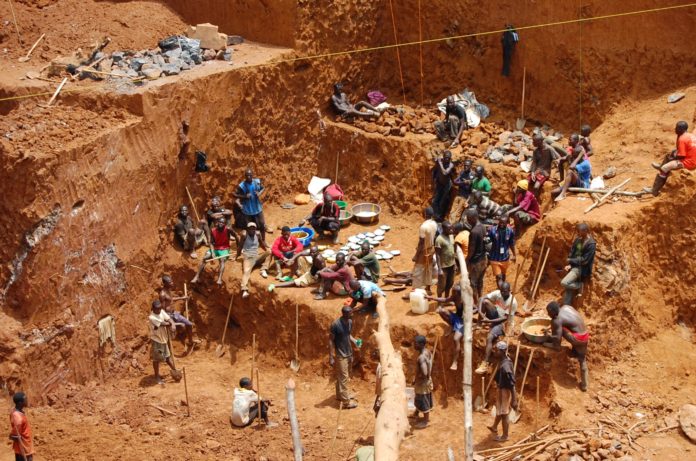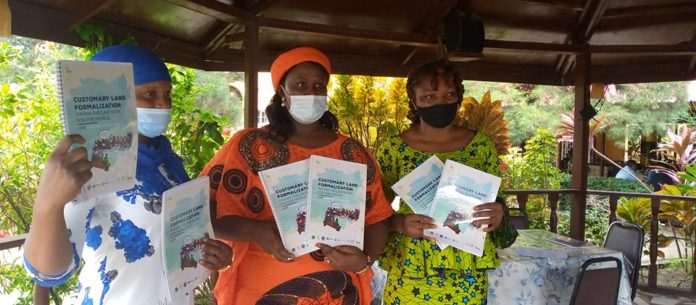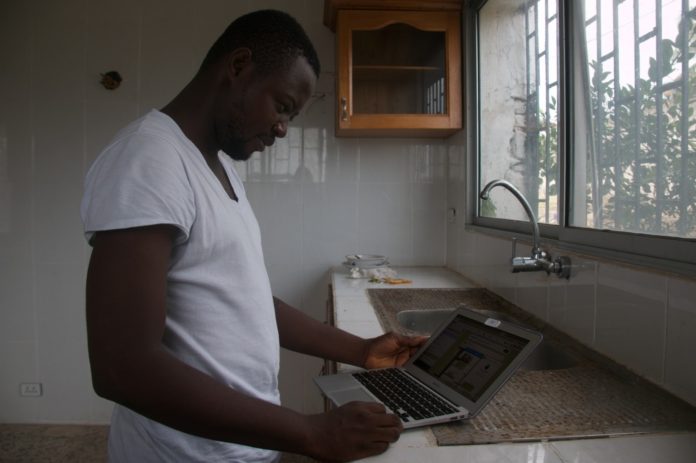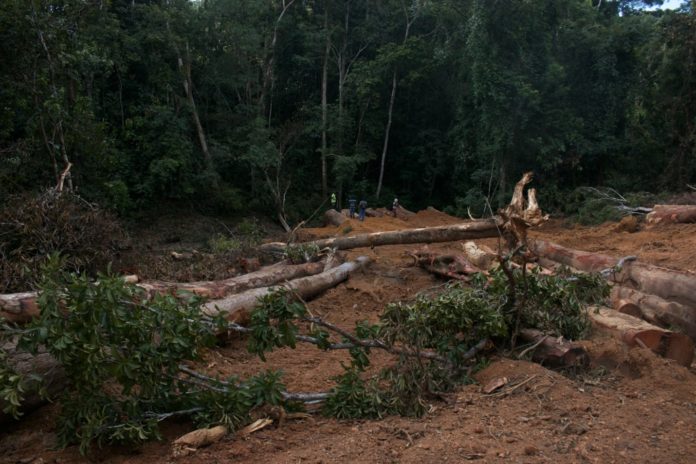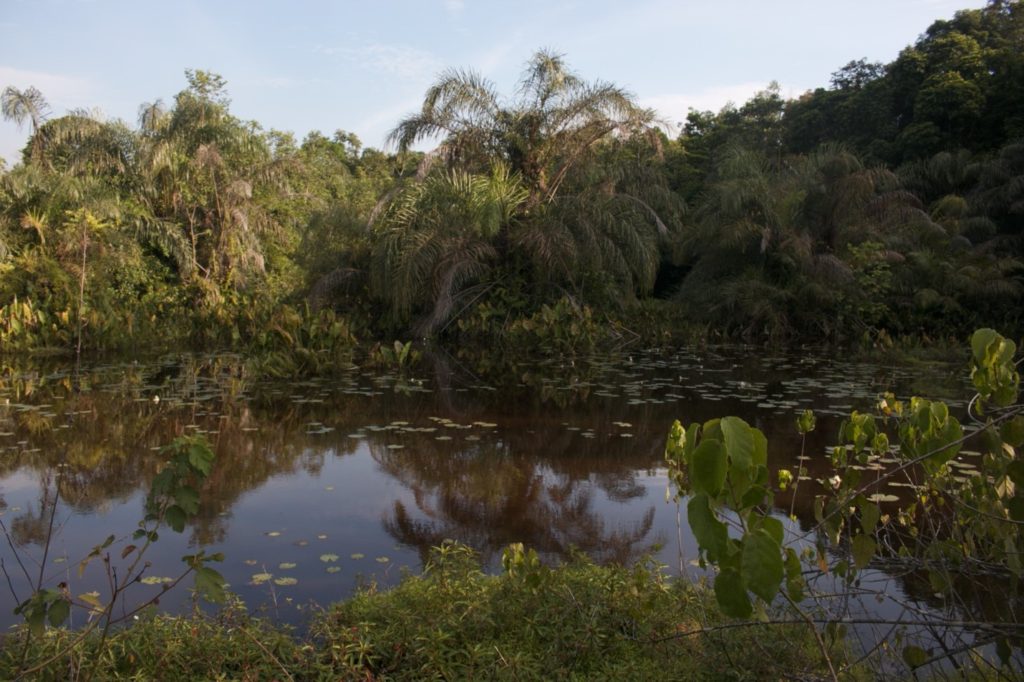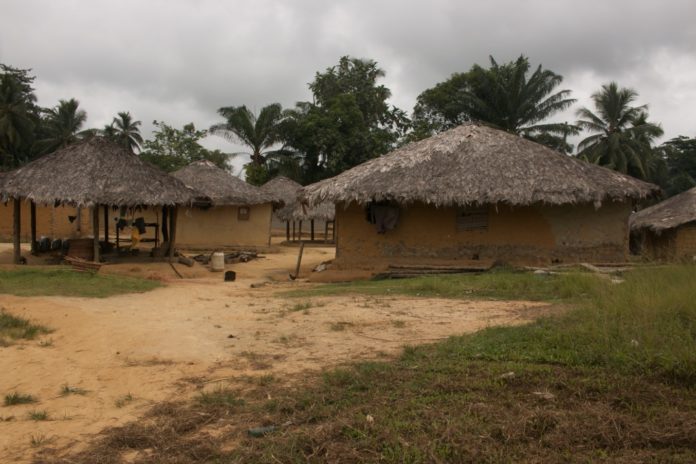Banner Image: Miners at a goldmine in Vambo, Grand Bassa County during a gold rush in 2014. The DayLight/KK
By Ojuku S. Kangar
- Vambo hosts Mt. Finley, which is 350 meters high and has potential for gold and other minerals. It was the setting of a 2014 gold rush
- African Trades is aware of that potential. It illegally prospected in the area in 2019. The place has been a hub of illegal mining, and it was only recently that the Ministry of Mines and Energy began issuing licenses in the area
- The company and officials of Grand Bassa County signed a bogus memorandum of understanding in 2019 to pave a 75-kilometer road in the remote community in exchange for logs. But that is a mask, as the company’s main intent is to mine
- It was unclear why African Trades is keeping its mining intention secret. It has no record of mining and logging in Liberia. Its link to Serbian nationals is unofficial, as it is a 100 percent Liberian company, according to its business registration
VAMBO, Grand Bassa County – A road network through the Grand Bassa County District Number Two townships of Vambo and Marloi is a cover up for access to those communities’ potential minerals, an investigation by The DayLight has revealed.
Officials of the county and African Trades Entrepreneur Enterprise Incorporated signed an illegal memorandum of understanding in the middle of last year for the company to construct the 75-kilometer road in exchange for logs 1.5 kilometers right and left of the entire road. The MoU violates forestry laws and does not have the input of citizens of the townships. The Forestry Development Authority (FDA) has criticized the deal and launched an inquiry into it but the officials and the company are adamant. The officials include Representative Mary Karwor, Superintendent Janjay Baikpeh and District Superintendent Nancy Green and Commissioner (Vambo) Daniel Dayougar, and Commissioner (Marloi) Amos Joe.
The MoU breaches the Community Rights Law of 2009 with Respect to Forest Lands, as Vambo is not an authorized forest community to sign a logging contract. In addition, African Trades has not implemented a logging contract before. It gave away its only legal logging contract to Renew Forestry Group in Grand Bassa District B&C Community Forest, a deal, which has thrown that community into crisis.
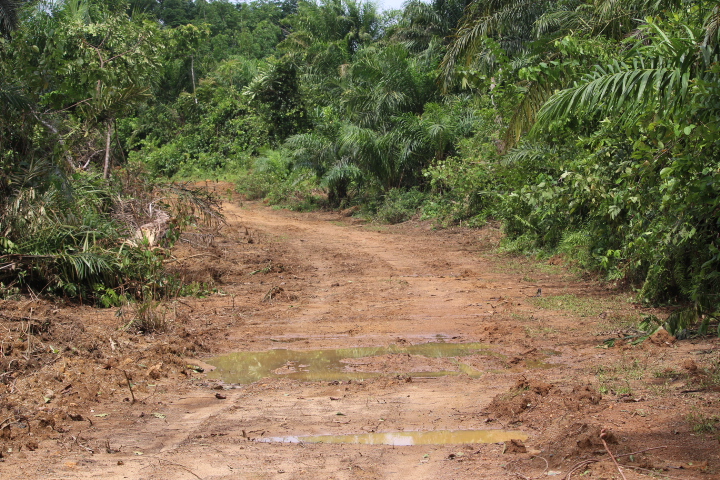
The bogus MoU says nothing about minerals or mining. However, The DayLight investigation found that the company is ignoring its violation of forestry laws because the company does not intend to log at all. It wants to mine in the area. It was not clear why the company decided to hide its mining aspiration.
“They are not coming for forest business. They are coming for mining,” said Daniel Dayougar, Commissioner of Vambo, one of the crafters of the MoU, in an interview last year. “They will extend the road where they will find the minerals.”
Amos Sweegaye, African Trades CEO said in an interview last year his “company is an entrepreneur and can do anything they want to do.” He has turned down all of our efforts to speak on the situation. Earlier this month, he threatened to lodge a complaint to the police if we call him once more on the matter.
The company’s mining intention is an open secret throughout Vambo and Marloi, though. Back in 2019, it brought in some geologists, including white men and prospected for two months in the area. They hired 17 townsmen to work in the Bamboo Village and left before the outbreak of the pandemic in the country early last year.
“At that time, they came and they went; as they left, it did not stay long the [coronavirus] started spreading,” Dayougar said in that interview last year. It was unclear whether the foreigners were Randovan Jovanovic and Ljubo Zivkovic, the Serbian president and vice president of African Trades, according to the MoU. The company is registered as a 100-percent Liberian firm.
Momo Sambolah, the mining chairman for the Grand Bassa District Number Two mining district under which Vambo and Marloi fall, is aware of the prospecting two years ago. A liaison between the locals and mining officers, he said he even assigned two villagers to assist the foreign prospectors.
“I got the information that they had gone in there for prospecting,” Sambolah, best known by his aliased “Kadafi,” said. “Myself took a walk and went there; I saw them and made them to move.”
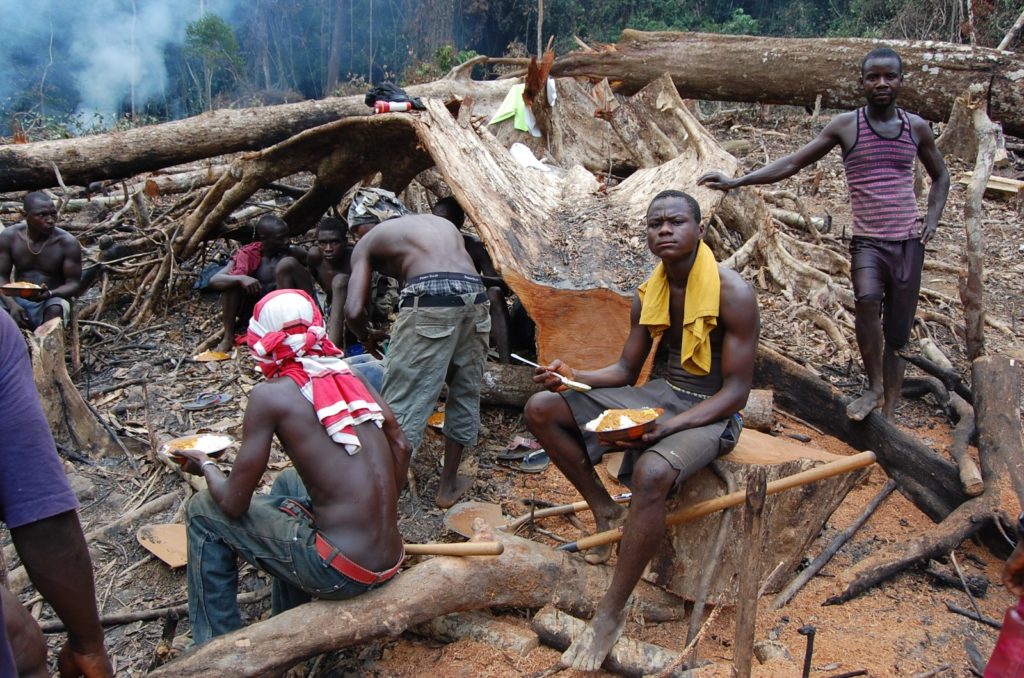
Like the MoU that gave rise to the road project, the African Trades’ prospecting in the area was also illegal. Until this year, the Ministry of Mine and Energy did not grant any mining right in that part of the country.
Currently, there are 19 active licenses in that mining region, including eight class C, three exploration, four prospecting, and one each of broker and class B, according to the ministry’s online repository as of June 23, 2021. While we could not tell which of the licenses are particularly in Vambo or Marloi, African Trades is not among them and it has never mined anywhere in the country.
Illegal mining is not a new Vambo tale. In 2014, there was a gold rush in the area, which drew huge attention of illegal miners nationwide. In 2014, residents of Vambo and its community in the United States called for international support to curb the illegal mining activities. Some 20,000 illicit miners descended upon the Noway Camp, a community at the foot of Mount Finley. The forested, 350-meter-high mountain is part of the Todi Shear, one of the most complex rock formations in Liberia, running from the northwest to southeast. There has not been a detailed survey done in the area. However, geological data generated by United States Geological Survey in collaboration with the Liberian Geological Survey suggest the occurrences of gold, coltan, tin and chromite. At present, illegal mining is the order of the day in the area, with locals themselves owning their own claims and foreigners dredging on the St. John River.
Currently, the road project is at a standstill. It is at Gbeewillie Town, the sixth of 10 communities the road network is meant to pass through. The company’s earthmovers are parked at four different locations.
Some citizens welcomed the dirt-road pavement. Vambo is not far from Buchanan—the capital of the west-central seaside county—but it is one of the remotest places in the country. Before the road construction, the community was impassable by vehicles, including motorcycles. Children had to trek to school, pregnant women hammocked to the Buchanan highway to hospital.
“Our prayer for road is answered. We will not [head-carry] loads every market day. Plenty motorbikes will come in and will be cheap,” Garkpa Dolo of Gblorso Town said.
“If the road had not come this year, I would have gone to my children in District Number Three to live there because I am tired suffering,” said Lacy Davis of Boe Town.
Many people said they have not seen the MoU before, despite it has been more than a year since it was carved from the clear, blue sky. Calls by citizens for a meeting on the document have yielded no fruit. Apart from the national and local officials, most of the townspeople who signed the MoU are related to Dayougar. Obediah Dayougar, the youth president, is his brother; Sarah Payegar, the women’s leader, sister; and Peter Payegar, Unification town master, brother-in-law. And the MoU gives the company the right to demolish structures within six feet without paying any compensation to their owners.
These things have led to a staunch opposition to the MoU among many chiefs, elders, women and the youth.
“The company will not force development on us,” said Ernest Gblorso, Chairman of Vambo Development Association, a local advocacy group. “The white men will not build the road and start mining without our consent.”
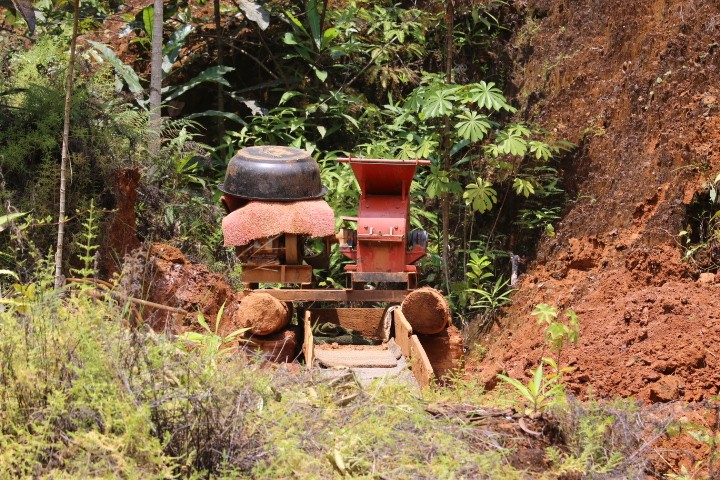
The story was updated on June 29, 2021, with changes made in the headline and more details in several paragraphs.

